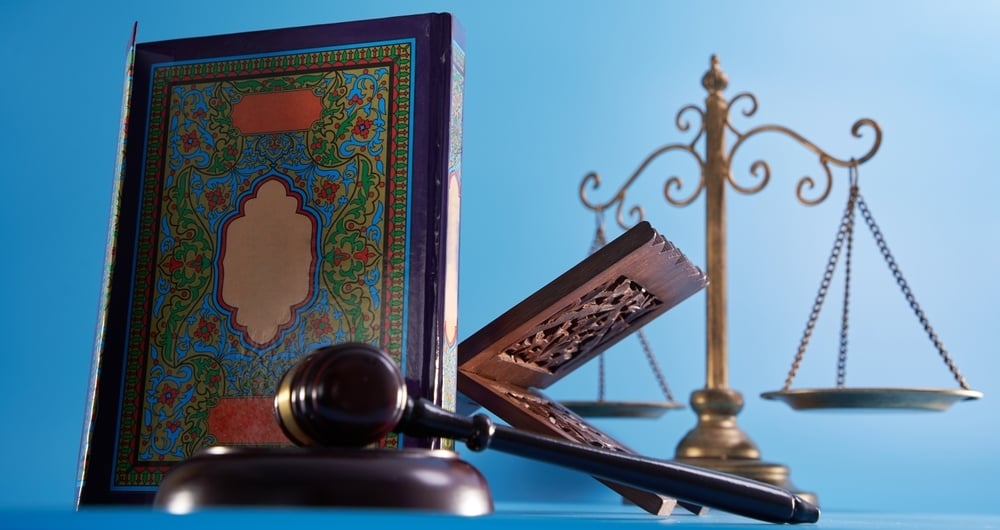What Are the Conditions for a Witness’s Testimony in Islamic Courts?
Shafi'i Fiqh
Answered by Shaykh Irshaad Sedick
Question
What are the conditions for a witness’s testimony in Islamic courts according to the Shafi’i school? Is a woman’s testimony admissible if she does not wear a hijab, and is she considered immoral (mutafahisha) because of this? Are there exceptions to this rule?
Answer
In the Name of Allah, the Most Merciful and Compassionate. May Allah alleviate our difficulties and guide us to what pleases Him. Amin.
In the Shafi’i school of Islamic law, the conditions for a witness’s testimony in Islamic courts are as follows:
– Freedom: The witness must be free.
– Legal responsibility (Mukallaf): The witness must be of sound mind, legally responsible, and an adult. Testimony from a child or an insane person is not accepted.
– Ability to speak: The witness must be able to communicate.
– Mental alertness: The witness should be mentally awake.
– Religious uprightness (‘adala): The witness must be upright in their religion. This means that the witness is trustworthy, avoids major sins, and does not persist in minor sins. A person’s religious uprightness can be questioned if they have committed serious violations of Islamic law, but it can be restored through sincere repentance.
– Outward respectability (Muru’a): The witness must conform to the accepted norms of the community regarding respectability and upright behavior. This standard can vary with time, place, and societal norms. [Nawawi, Minhaj Al-Talibin]
Regarding the testimony of women
– Property-related cases: Two women and one man may testify, or one man and the plaintiff’s oath, as outlined in [Quran, 2:282].
– Non-property-related cases: In cases like marriage or legal punishments (hudud), the testimony of only two male witnesses is accepted. However, in the Hanafi School, two women and one man can testify in marriage cases.
– Fornication or sodomy: Four male witnesses are required.
– Matters women typically witness: For things men do not typically observe, such as childbirth, testimony can be given by two men, one man and two women, or four women. [Misri, ‘Umdat al-Salik]
Regarding the question of a woman not wearing hijab
Regarding the question of whether a woman is considered immoral (mutafahisha) if she does not wear hijab, the Shafi’i texts do not explicitly define the lack of hijab as rendering a woman’s testimony invalid or making her immoral.
Not wearing hijab does impact her religious uprightness (‘adala), as the hijab is a clear command in the Sacred Law. However, whether a woman is considered immoral (mutafaḥisha) or her testimony is rejected because of this depends on the court and is usually considerate of the societal norms and the specific context.
The Shafi’i School emphasizes that standards of respectability (muru’a) are determined by the customs of the time and place, meaning that the lack of hijab may or may not affect a woman’s respectability depending on community norms, though she is in transgression of the Law of Allah. [Biqa‘i, Fayd Ilahi Al-Malik]
Thus, while the absence of hijab may raise concerns regarding a woman’s religious uprightness, her testimony could still be valid if her overall integrity is recognized and respected in her community. This area is flexible and context-specific, requiring the judgment of senior contemporaneous scholars.
Therefore, the admissibility of female witnesses depends on the context and nature of the case, and Allah knows best.
I pray this is of benefit and that Allah guides us all.
[Shaykh] Irshaad Sedick
Checked and Approved by Shaykh Mohammad Abu Bakr Badhib
Shaykh Irshaad Sedick was raised in South Africa in a traditional Muslim family. He graduated from Dar al-Ulum al-Arabiyyah al-Islamiyyah in Strand, Western Cape, under the guidance of the late world-renowned scholar Shaykh Taha Karaan (Allah have mercy on him), where he taught.
Shaykh Irshaad received Ijaza from many luminaries of the Islamic world, including Shaykh Taha Karaan, Shaykh Muhammad Awama, Shaykh Muhammad Hasan Hitu, and Mawlana Abdul Hafeez Makki, among others.
He is the author of the text “The Musnad of Ahmad ibn Hanbal: A Hujjah or not?” He has been the Director of the Discover Islam Centre, and for six years, he has been the Khatib of Masjid Ar-Rashideen, Mowbray, Cape Town.
Shaykh Irshaad has fifteen years of teaching experience at some of the leading Islamic institutes in Cape Town). He is currently building an Islamic podcast, education, and media platform called ‘Isnad Academy’ and has completed his Master’s degree in the study of Islam at the University of Johannesburg. He has a keen interest in healthy Prophetic living and fitness.
